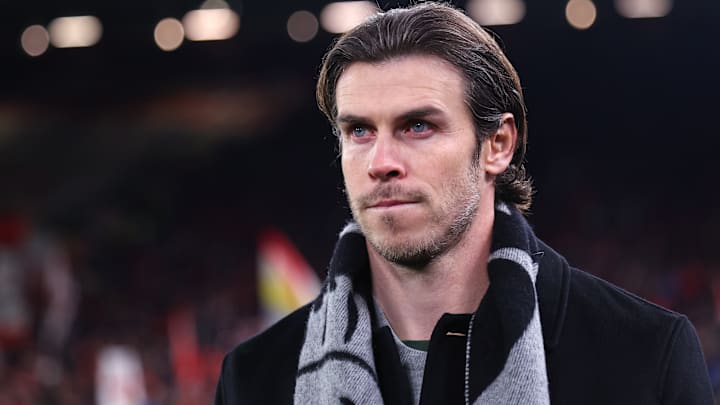Gareth Bale has always been a curious figure in European soccer. A player who sometimes looked more like a “professional” golfer. Even so, he won five Champions League titles, four Club World Cups, and 16 trophies with Real Madrid, then made a return to Tottenham and later crossed the ocean to play for LAFC in MLS. But now, at 36, the Welshman is back in the headlines for a very different reason: the fear of losing everything he achieved off the field. In an interview with Front Office Sports, the former forward admitted he’d always been afraid of ending up broke, like so many stars who shined and then disappeared under the weight of bad decisions.
The worry that comes after fame
“You read stories about athletes who retire and end up bankrupt,” Bale said. The line might sound almost banal, but it carries real weight coming from someone who earned more than €170 million just in salary at Real Madrid, according to the newspaper AS. That’s no small amount. Even so, the former player made it clear that money itself was never the issue, the issue was always what to do with it. “Many athletes live a life of luxury, something I tried not to do. I always paid attention to what life would be like after soccer.”

Bale’s warning hits a sensitive nerve. Soccer, especially at the top of the pyramid, creates bubbles. Inside them, reality is shaped by numbers and privileges that seem eternal. Mansions, cars, trips, and multimillion-dollar contracts create the false impression that the money will never run out. But the end of a career comes faster than any dribble, and most aren’t prepared for it. That’s when the spotlights go out and the silence weighs more than fame.
From idol to example of prudence
What’s curious is that Bale was never the typical symbol of ostentation. Even in his glory years, he seemed disconnected from the glamour surrounding Real Madrid. He preferred playing golf to attending events. While many former players find themselves stuck in a lifestyle they can’t sustain, Bale talks about investment, planning, and diversification.
“When you stop playing, you stop earning. How do you restructure your life? I always tried to diversify. My initial idea was to invest my money in several things. If one didn’t work out, I wouldn’t lose everything.” The statement could come from a finance executive, but it’s from someone who spent half his life being judged by goals, not economic decisions.
That mindset contrasts with the sad stories of stars who lost everything. From the Americas to Europe, there are dozens of examples of former players who saw fortunes disappear in bad deals, addictions, or pure naivety. Bale’s case serves as a counterpoint.
